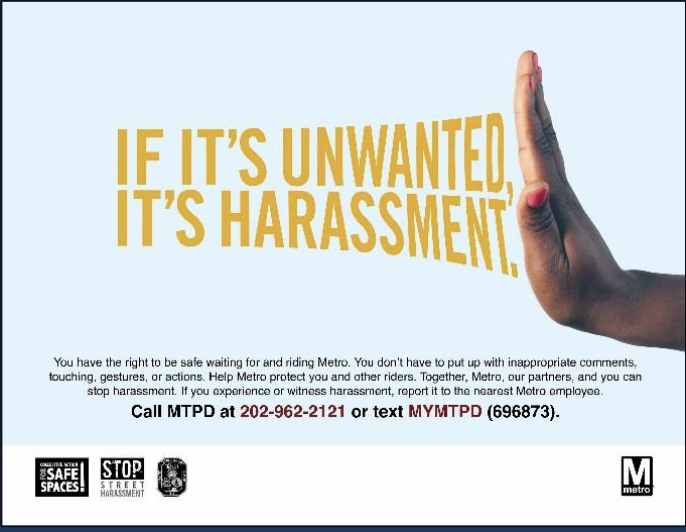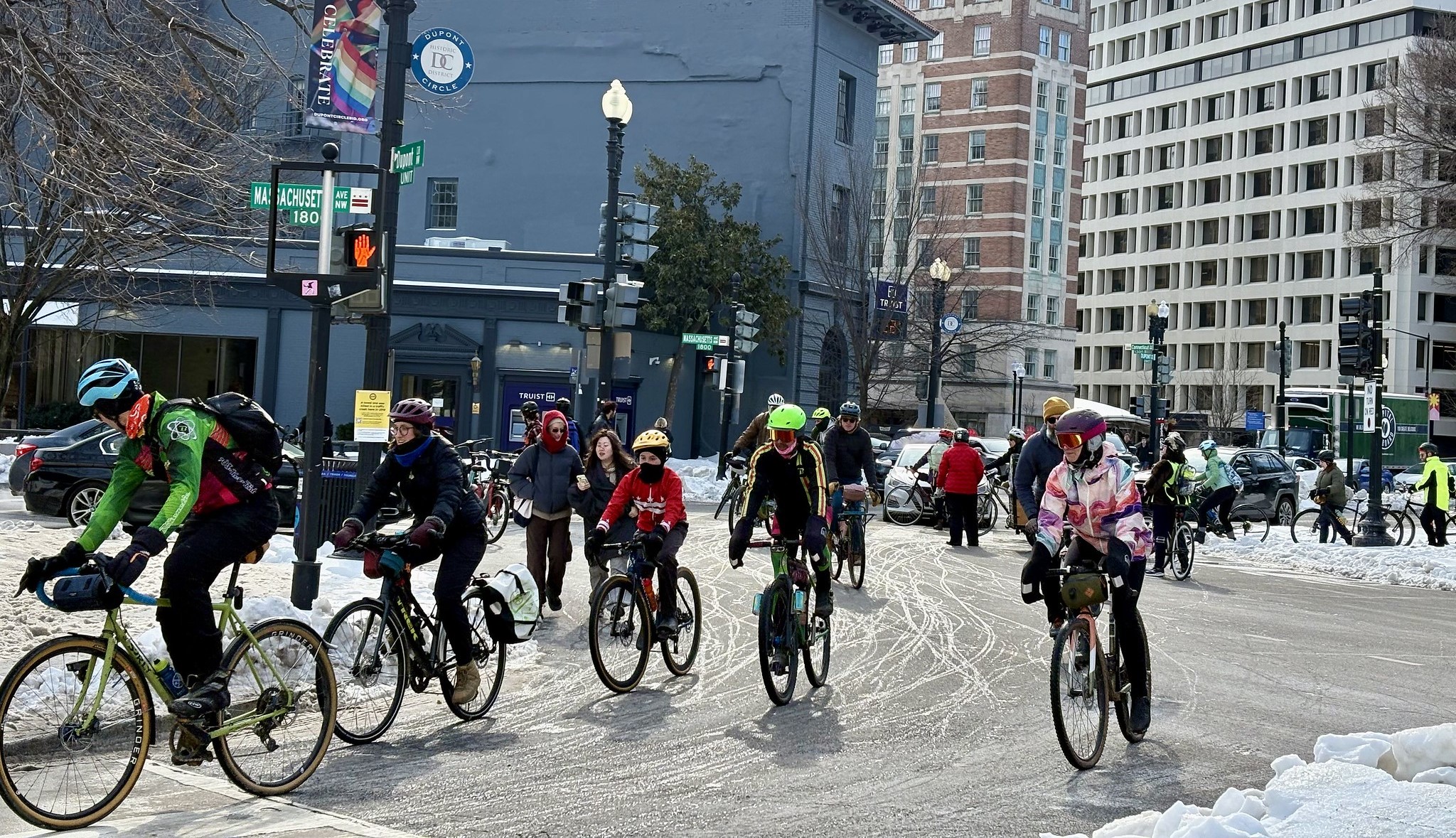Editor's Note: This article originally appeared on Greater Greater Washington. It focuses on a campaign in the DC region, but because the issue of sexual harassment on transit is an international one, we're sharing it as an object lesson for our national readers as well. It is republished with permission.
As ridership on Metro bus and rail continues to lag behind pre-pandemic levels, restoring women’s confidence in transit safety through anti-sexual harassment interventions could restore a key rider demographic. WMATA made inroads on this problem before the pandemic, but in the last few years, progress has stalled.
Before the COVID-19 pandemic, the majority of US transit riders were women according to a 2017 report by the American Public Transport Association. This trend holds true for commuters in the Washington DC metro area as well. In 2019, women made up 54.4 percent of commuters on public transit. Two years later, female ridership in the metro area has fallen to 49 percent.
Sexual harassment is a known problem on Washington DC’s transit systems. According to a study conducted by WMATA in 2018, two-thirds of passengers surveyed reported being sexually harassed verbally or worse. When considering safety concerns, women are more likely to use private cars, ride-hailing, and taxis than public transit if that option is available to them. These options route women away from more affordable and sustainable options like walking, biking, and public transportation.
As WMATA works to reach its pre-pandemic ridership levels, they should consider reviving their anti-harassment campaigns to help create a welcoming environment for women.
WMATA had a plan: what happened?
To their credit, WMATA began addressing the issue of sexual harassment on their buses and trains in 2012 by creating a sexual harassment reporting system. A few years later, the agency partnered with Stop Street Harassment and Collective Action for Safe Spaces. This partnership conducted anti-harassment campaigns in 2015 and 2016 alongside a survey to gain insight into harassment on public transportation. They repeated the survey in 2018 followed by anti-sexual harassment campaigns in 2018 and 2019.

WMATA’s 2018 survey concludes that anti-sexual harassment campaigns positively influence riders’ willingness to report harassment when they see it or experience it. There was also a drop from 75 percent of respondents reporting being harassed verbally in 2016 to 64 percent just two years later.
Despite marked improvements, the need for continued awareness and monitoring continues.
WMATA put considerable time and effort into understanding the problem of sexual harassment, to the point that it became a line item in the 2016 and 2021 budgets. However, WMATA’s plan moving forward remains unclear. To date, their partners, Stop Street Harassment and Collective Action for Safe Spaces have not posted updates or roadmaps on their websites, and there is little evidence that any more campaigns were run after 2019. WMATA was contacted for comment but did not respond to inquiries about their plans to revive their past efforts.
WMATA needs riders. A lot of riders are women
Before the pandemic, Metro’s main source of ticket revenue lay with people commuting into the heart of DC for work and back to their homes in and outside the city limits. Ticket revenue from federal government employees represented approximately half of the operating budget, according to comments from a former WMATA board member.
Post-pandemic, more people are working remotely or in hybrid arrangements. This painful fiscal loss underlines the need for WMATA to understand and address existing barriers for non-commuting riders, such as women, who tend to take shorter, more frequent trips for non-work reasons and have more varied trip types from going grocery shopping to dropping off children at school.
The COVID-19 pandemic hit public transportation systems particularly hard. Sexual harassment and safety programming were clearly improving riders’ experiences before the pandemic. WMATA seems to agree. In the 2023 budget, an anti-harassment campaign is included as one of its six key priorities. The positive track record from before the pandemic means that WMATA has a solid foundation upon which to build.
In the ebb and flow of a global health crisis that obscured another shadow pandemic of increased violence against women, it is time WMATA acts on their stated priorities and visibly resumes their efforts to combat bad behavior and improve public trust. They cannot afford to continue to lose female ridership to private transportation. And in the current economic downturn, women should not be faced with a choice between secure transport and affordable fares.






